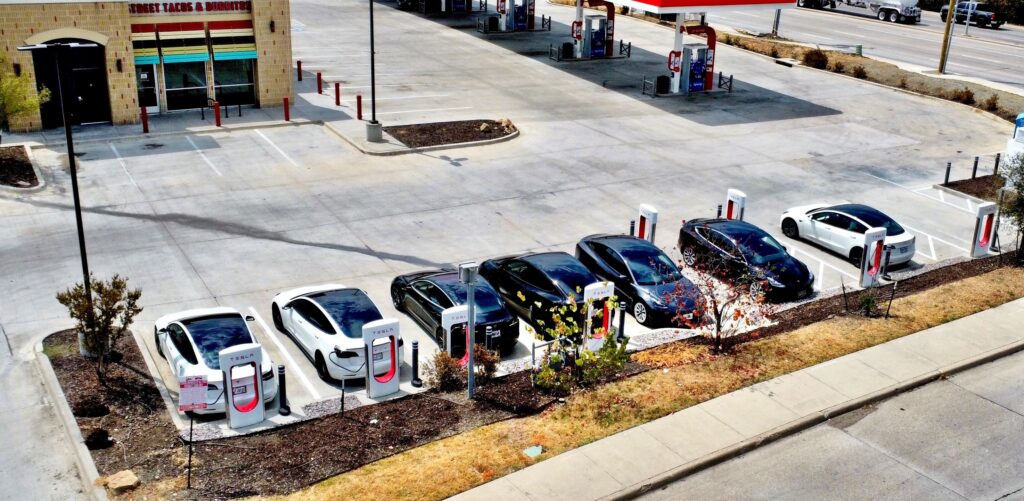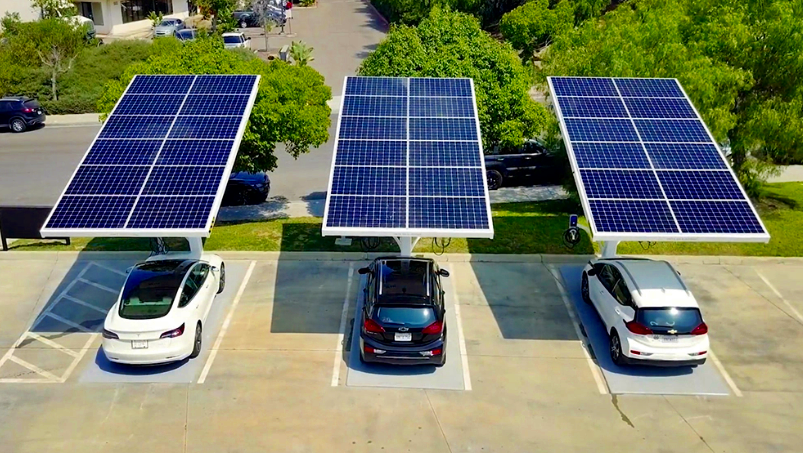With access to charging stations being a major concern of consumers considering electric vehicles, carmakers and governments recognise the need to quickly build a network nationwide. It may take some time to match liquid fuel stations – the product of 100 years of development – but what’s important is to get started and keep up the momentum to grow EV charging station numbers.
![Texaco station [1930]](https://www.motaauto.com/wp-content/uploads/2024/02/Texaco-station-1930-1024x588.png)
Tesla started Supercharger network in 201
In America, a much larger country, there have been various indicatives to build the network. Some companies, like Tesla, have invested in setting up their own network as far back as 12 years ago, while power providers are also working on networks regionally.

7 carmakers form joint venture
In July last year, 7 carmakers – the BMW Group, General Motors, Honda, Hyundai, Kia, Mercedes-Benz Group, Stellantis NV – announced a joint plant to develop a new, high-powered charging network with at least 30,000 chargers in North America. The objective of having the joint venture is to pool resources venture to accelerate the transition to electric vehicles in North America.

Accelerating EV ardoption in North America
“The creation of EV charging services is an opportunity for automakers to produce excellent user experiences by providing complete, convenient and sustainable solutions for our customers. Toward that objective, this joint venture will be a critical step in accelerating EV adoption across the U.S. and Canada and supporting our efforts to achieve carbon neutrality,” said Honda CEO Toshihiro Mibe.
“We believe that a charging network at scale is vital to protecting freedom of mobility for all, especially as we work to achieve our ambitious carbon neutrality plan. A strong charging network should be available for all – under the same conditions – and be built together with a win-win spirit,” added Stellantis CEO Carlos Tavares.

Each site, initially in the USA, will be equipped with multiple high-powered DC chargers for shorter charging times, making long-distance journeys easier for customers. They will use the Combined Charging System (CCS) or North American Charging Standard (NACS) for compatibility with most EVs in the market.
![BMW i5 eDrive40 EV [2023]](https://www.motaauto.com/wp-content/uploads/2023/11/BMW-i5-2023-4-1024x683.jpg)
Sustainable strategies
In line with the sustainability strategies of all seven automakers, the joint venture intends to power the charging network solely by renewable energy. Initial plans call for the deployment of charging stations in metropolitan areas and along major highways, including connecting corridors and vacation routes, aiming to offer a charging station wherever people may choose to live, work and travel.
Joint venture has been given green light’
The joint venture company, known as IONNA, was approved by the authorities this week. Its network will be accessible to all EVs and include various amenities. The services will facilitate seamless integration with participating carmakers’ in-vehicle and in-app experiences, encompassing reservations, intelligent route planning and navigation, payment applications, transparent energy management, and other features.

